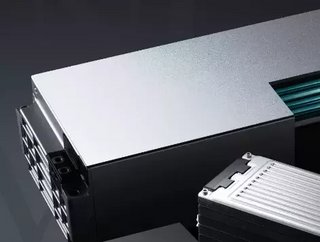LG Energy Solution seals minerals deal with Australian Mines

LG Energy Solution has secured 100% rights to battery-grade nickel and cobalt materials from Australian Mines amid growing concerns about future supplies of raw materials.
The supplier of advanced lithium-ion batteries for Electric Vehicles, Mobility & IT applications, and Energy Storage Systems has struck a six-year deal with Australian Mines, which will be supplied in the form of mixed hydroxide precipitate (MPH) from the US$1.5 billion Sconi Project in North Queensland, in which it will have access to 71,000 tonnes of nickel and 7,000 tonnes of cobalt from the end of 2024.
The deal would supply batteries that can power 1.3 million high-performance electric vehicles, with driving range surpassing 500kms on a single charge.
Cooperation with Australian Mines will also help LG Energy Solution gain an upper hand in securing stable supply of key ingredients for EV batteries, as a race to procure raw materials for EV batteries became fierce amid growing global demand of EVs.
During the mining procedure, Australian Mines will be using the dry stacking method, known as a sustainable method used to store filtered tailings. Although more costly, compared to the conventional method due to construction and maintenance expenses, the dry stacking method is deemed an environmentally friendly way to extract raw materials.
The dry stacking method eliminates the use of storage ponds and dams associated with conventional tailings facilities, which is an eco-friendly method used to store filtered tailings. This method avoids the possibility of dam failure and long-term storage issues.
Conventionally, the handling of tailings includes dumping them directly into streams, rivers and lakes or using mining surfaces or underground quarries and pits for disposal, leading to potential leakage of toxic substances.
Also, Australian Mines became a member of the Initiative for Responsible Mining Assurance, the IRMA, in 2020 indicating that the mining firm supports and participates in a third-party verification and certification against a comprehensive best-practice standard that addresses environmental and social issues related to industrial-scale mines.
"Securing key raw materials and a responsible battery supply chain has become a critical element in gaining a greater control within the industry, as the demand for electric vehicles worldwide heightened in recent years," said Jong-hyun Kim, President and CEO of LG Energy Solution. "LGES will solidify its position as the world's leading battery manufacturer through a steady supply of raw materials for EV batteries."
LG Energy Solution has been at the forefront in securing key raw materials for EV batteries. The company has invested KRW 12 billion to Queensland Pacific Metals (QPM) in June for 7,000 tonnes of nickel and 700 tonnes of cobalt per year for a decade starting late 2023.
Previously LGES has also announced its investment of KRW 57.5 billion in European subsidiary of Solus Advanced Materials in December for copper foil for 5 years from 2021.
An accelerated energy transition could quickly see demand running ahead of supply and create a 'looming mismatch' of mineral supply and climate ambitions, according to a recent International Energy Agency (IEA) report.
The Role of Critical Minerals in Clean Energy Transitions states that while there is no shortage of mineral resources, recent price rises for cobalt, copper, lithium and nickel show how supply could struggle to keep pace with the world’s climate ambitions and overall requirements could rise as much as six-fold by 2040 (click here for more details).
It's not just consumer demand driving lithium interest. Owing to its higher economic feasibility, lower carbon emission, and limited operational and maintenance cost, battery electric vehicles are emerging as a preferred option in underground mining, for instance.
Fitch Solutions cautions that since lithium is now considered a ‘strategic mineral’, it will likely lead to rising government intervention in its production and sourcing, and forecasts global lithium production will more than triple from 442,000 tonnes of lithium carbonate-equivalent (LCE) in 2020 to 1.5 million tonnes of LCE by 2030.
The lithium supply landscape will, therefore, evolve quickly and dramatically over the next few years. According to SNE Research, a market researcher for rechargeable batteries of electric vehicles, the global waste battery market would be valued at about KRW20 trillion in 2030.
Last week President Biden signed an Executive Order that sets an ambitious new US target to make half of all new vehicles sold in 2030 zero-emissions vehicles, including battery electric, plug-in hybrid electric, or fuel cell electric vehicles (click here).






